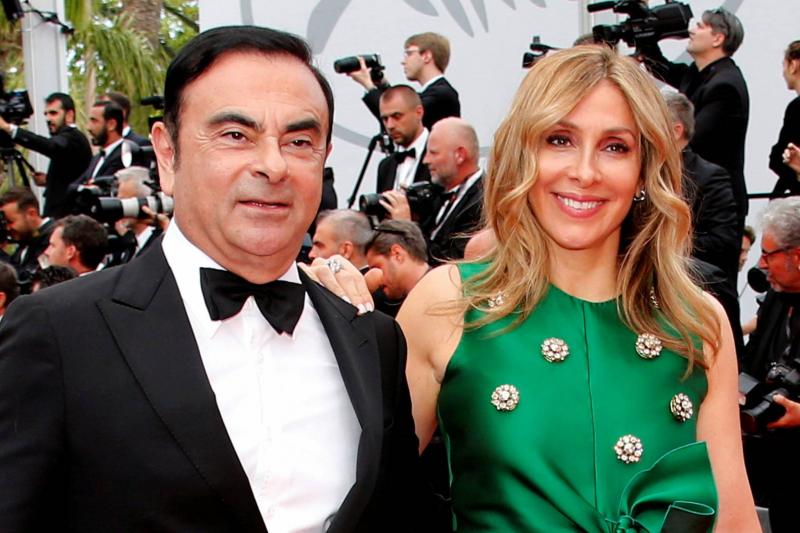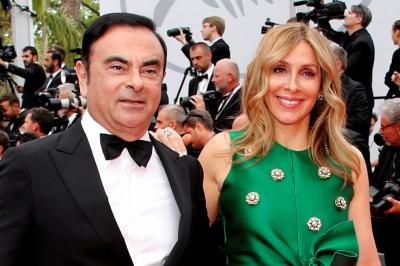French judges listened to former automotive mogul Carlos Ghosn on Wednesday as a witness in investigations into fraud related to emissions monitoring at Renault, according to a Lebanese judicial source and French sources close to the case. The Lebanese judicial source informed AFP that "six French judges, including public prosecutors and investigating judges, began listening to Ghosn's testimony at 11 a.m. at the Palace of Justice," attended by Lebanese public prosecutor Judge Imad Qablan and Ghosn's legal representatives.
A French source familiar with the case confirmed to AFP that French authorities are interviewing Ghosn as a "witness" in the case known as "Dieselgate" concerning the use of fraudulent diesel engines. An investigation into this was launched in France in 2015, leading to a settlement last year between the German automotive group Volkswagen and the German Consumer Organizations Union. The case involves Volkswagen, Fiat Chrysler, and Peugeot companies.
Ghosn's questioning in this case is not intended to lead to charges against him, although he is a suspect in another case dating back to November 2016, when a preliminary report from the Directorate General for Competition, Consumer Affairs, and Fraud Control prompted a judicial investigation against Renault on suspicion of "deception in essential qualities and monitoring operations." The directorate has deemed that "the entire management sequence" at Renault, leading up to Carlos Ghosn, who was its CEO, is implicated. The directorate concluded that "Ghosn did not delegate authority," which imposes personal liability on him, a claim that Renault denies, asserting that no fraud occurred in this case.
A legal dispute before the Court of Justice of the European Union has delayed investigations into this matter for a long time, ultimately leading the court to rule that the systems used by manufacturers to artificially improve vehicle test results in compliance with existing legislation are illegal. Lawyer Charles Constantian-Vallet, representing the National Association of Consumers and Users, stated that the hearing of Ghosn "shows progress on these files following the decisions of the Court of Justice of the European Union that opened the door for legal action." The lawyer emphasized that "the criminal lawsuit is the least expensive and most secure path for owners to ultimately obtain compensation," given the decline in vehicle resale values after the scandal.
Wednesday's session with Ghosn comes just before another hearing with different French investigative judges, who will question him in the coming days as part of judicial procedures initiated against him in France. In Nanterre, authorities suspect that Ghosn personally benefited from an agreement between Renault and the organization managing the Palace of Versailles by organizing two private events. Last week, a Renault shareholder filed a lawsuit against Ghosn concerning "large amounts" paid "without the shareholders' knowledge" to "RNBV," the Dutch subsidiary of the Renault-Nissan alliance. Investigators are also examining suspicious payments made to the French automaker's distributor in Oman, "Suhail Bahwan Automobiles."
Investigators have been scrutinizing consulting services contracted by "RNBV" with former French Justice Minister Rachida Dati and French crime expert Alain Bauer while Ghosn was still the CEO of the automotive group. On May 20 of this year, Dutch authorities ordered Ghosn, who is accused of fraud, to repay the salaries he received between April and November 2018 from the Nissan-Mitsubishi alliance, amounting to about five million euros. Ghosn, who plans to appeal the ruling, has filed a claim against the alliance, controlled by a Dutch holding company, challenging what he describes as unlawful dismissal and is demanding a compensation of 15 million euros. Ghosn has been residing in Lebanon since late December 2019 after fleeing Japan to escape judicial proceedings for financial misconduct. He was arrested in Japan in November 2018 and remained in detention for 130 days.




